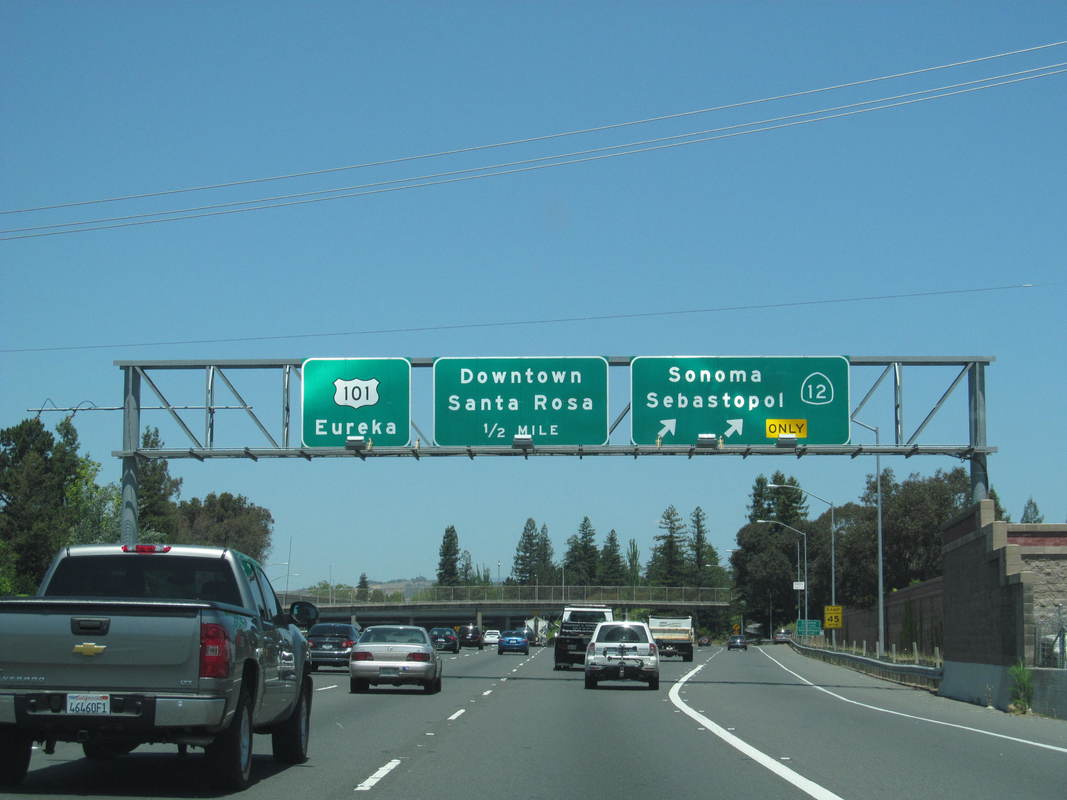|
Since our country was founded we, as a nation, have disagreed on which theory of justice should guide our criminal justice system. Should it be to punish? To rehabilitate? Or to serve as retribution? While it’s easy to want to see those who have harmed us suffer for their wrongdoing, one of society’s more noble goals is to try to help wrongdoers learn from their mistakes and better themselves.
Here in Sonoma County, the Community Accountability Diversion (or CAD) program, authorized under Penal Code 1000, offers first-time misdemeanor and felony narcotic offenders[1] an alternative to traditional court proceedings. The program seeks to educate offenders, both on self-improvement and the community resources available to them that can help them overcome their addiction, directly or indirectly. Such resources include those related to employment, education, treatment and mental health. If an offender can successfully complete the program, the underlying criminal charges will be dismissed, helping keep the offender’s record clean, enabling them to move on with their lives. Because of the tremendous upside—protecting a person’s record—the program requirements can often be strict, and the District Attorney’s Office must agree that a person is worthy of such leniency. Most of the time, to qualify a person needs to have an otherwise clean record for the last five years, and needs to have never previously failed to appear for a court date. Other disqualifiers can also include having been placed on probation previously, having a prior conviction for certain serious crimes,[2] or having other pending charges at the time CAD is considered. Further, all CAD participants are required to submit to random drug testing. Depending on the nature of the participant’s addiction, the details of that person’s individualized treatment plan will vary, but may include community service and/or therapy sessions. While the program understands that sometimes people backslide—and potentially allows for such errors—it has a strict two-strike policy: diversion will be terminated and the original charges will be reinstated. Participants spend six months actively involved in the program, and then must wait an additional year before they can have the charges dismissed. During that year, they must avoid trouble with drugs and the law. If you are facing criminal charges, feel that you qualify for CAD, and would like to learn more about the program requirements, a qualified defense attorney can help. Devina Douglas has years of experience negotiating resolutions for her clients which allow them to walk away from the criminal justice system without a criminal record. To contact Devina. ___________________ [1] Although the program is most often used when a person has been charged with a narcotics offense, it can also be used where an offender had been charged with misdemeanor: Vandalism, Trespass, Public Intoxication – Alcohol-related, Furnish a minor with alcohol, Consumption of Alcohol on Public Street, Public Urination , or Camping in an Undesignated Area. [2] Such crimes include any felony, gang related crimes, physical abuse or neglect to minors, domestic violence and charges that involve abuse or neglect to an animal. Most of us were raised to know that when we do something wrong, the right thing to do is to take responsibility for our actions. Owning up to our mistakes nearly always guaranteed a fair and just punishment. Because of this, it seems intuitive then that when we get into trouble with the law, the same principles should apply, leading us to wonder why we need a lawyer at all. After all, why do we need to pay someone to stand there beside us when we throw ourselves on the mercy of the court?
The answer is simple: because the law is often times so complex that even the most straightforward cases can have surprising twists and turns. Lawyers pride themselves on their ability to zealously represent their clients, in other words, doing everything they can within the bounds of the law to ensure that their client wins. Without someone in your corner who can help you determine if the other side is asking for a lot from you because their client has a very strong case or because they are merely pushing for every advantage, it can be hard to know if you are getting a fair deal. When debating whether to hire a lawyer, it is important to keep in mind what is at stake. In a civil case, it’s often either your money or property at risk. In a criminal case, however, you stand to lose your money, property and your freedom. So while you probably don’t need a lawyer to help you handle fighting the ticket you got for driving 67 mph in a 65 mph-zone, if you’re charged with even a slightly more serious crime, having a lawyer in your corner can really pay off. Here are the ways in which retaining a lawyer can definitely help:
If you think you might need a Criminal Defense Attorney in the North Bay Area, feel free to contact Devina Douglas. Throughout the county, marijuana is gaining acceptance as a legitimate form of treatment for all sorts of medical conditions, including helping those suffering from cancer and chronic pain.
While still illegal under federal law, 23 states currently allow patients to use medical marijuana, with four states and Washington, D.C. going as far as to legalize its recreational use.[1] Additionally, in late 2014, Congress took measures which some viewed as an effective end to the federal government’s ban on medical marijuana, despite policy makers feeling more research needs to be conducted.[2] Less than eighteen months later, it appears that the research has supported the contention that the drug does have medical applications. By some estimates, these applications could change the $6.7 billion/year marijuana industry into an industry worth over $20 billion/year by 2020.[3] Currently, marijuana is classified as a Schedule 1 drug, a category reserved for those with “no currently accepted medical use and a high potential for abuse,” the most dangerous drugs on the market.[4] However, earlier this week the DEA announced that it is considering reclassification of the drug.[5] This is despite “some in Congress [being] quite vocal about their opposition to administrative rescheduling.”[6] It has yet to be determined whether the drug would be given a Schedule 2 or Schedule 3 classification. Schedule 2 drugs are those that “are still subject to varying degrees of control, but have a recognized medical use and may be dispensed with a prescription under certain circumstances.”[7] Schedule 3 drugs are those that “have a lower potential for abuse than drugs in the first two categories, accepted medical use, and mild to moderate possible addiction.”[8] The first attempts at reclassifying the drug came in 1981, when Representative Stewart McKinney (R-CT) introduced a bill which would have made marijuana a Schedule 2 drug.[9] Every year thereafter a similar bill had been introduced to Congress, and every year thereafter the respective bills died in committee.[10] Should the drug be reclassified, the number of labs allowed to legally possess the drug will grow, allowing more research to be conducted, giving all involved a better opportunity to understand how the drug affects human health. Currently, only one lab, at the University of Mississippi, has authorization to grow marijuana for testing, and approximately nine others have permission to perform such testing.[11] Additionally, reclassification could change the way the legal marijuana industry functions, from expanding the funding sources available to businesspeople wishing to get involved in the industry, to altering the tax effects of running a marijuana-related business.[12] The last time the DEA discussed the possibility of reclassifying the drug was in 2011 at which time the DEA denied a petition for reclassification, a decision upheld by the U.S. Court of Appeals for DC in 2013. A decision is expected before July.[13] [1] Tom Huddleston, Jr., U.S. Surgeon General Warms to Medical Marijuana (2/4/2015). [2] Id. [3] Tom Huddleston, Jr., The DEA Will Soon Decide Whether it Will Reschedule Marijuana, FORTUNE (4/6/2016). [4] Drug Schedules, available at http://www.dea.gov/druginfo/ds.shtml. [5] Tom Huddleston, Jr., The DEA Will Soon Decide Whether it Will Reschedule Marijuana, FORTUNE (4/6/2016) [6] John Hudak and Grace Wallack, How To Reschedule Marijuana, And Why It's Unlikely Anytime Soon (2/13/15). [7] Id. [8] http://www.dea.gov/druginfo/ds.shtml. [9] John Hudak and Grace Wallack, How To Reschedule Marijuana, And Why It's Unlikely Anytime Soon (2/13/15). [10] Id. [11] Tom Huddleston, Jr., The DEA Will Soon Decide Whether it Will Reschedule Marijuana, FORTUNE (4/6/2016). [12] Id. [13] Id. Until recently, individuals in California who wanted to challenge the constitutionality of their conviction or sentence had to be in custody to file a writ of habeas corpus in order to do so. This, of course, meant that those who became aware that there was some unconstitutionality affecting their conviction or sentence after release were left without any recourse. Sadly, this was even the case in situations in which the only witness to the crime later recanted their story.
As many immigrants are becoming aware, especially in this changing political climate, certain convictions can trigger removal proceedings, causing non-citizens to have to spend a significant amount of time in a federal detention facility (often far from home,) before being deported. All too-commonly, these non-citizens become aware that their convictions have made him or her deportable only after they have been released from custody. This is especially common where the non-citizen chose not to be represented by an attorney during the pendency of their case, which is always an ill-advised decision. Why is it so ill-advised for a non-citizen to chose to represent themselves? Because an attorney can not only help mitigate the direct consequences of a conviction, but can also help the defendant understand the collateral consequences—such as immigration consequences—of the conviction. In fact, recognizing the importance of ensuring that non-citizen’s know about the potential immigration consequences of their convictions the U.S. Supreme Court has held that defense attorneys MUST advise non-citizens of these consequences are try to seek out immigration-safe plea bargains. For that reason, if a defendant wasn’t made aware of these consequences, that defendant has good cause to challenge the constitutionality of the conviction. When wishing to attack the conviction for immigration-related purposes, an often-pursued route for those out of custody used to be to claim ineffective assistance of counsel (IAC) through a writ of coram nobis. Unfortunately, this attack strategy was rendered moot when, in 2009, the California Supreme Court ruled that such IAC claims could not be raised this way. Thankfully, as of January 1, 2017, California’s Penal Code 1473.6 now allows these out-of-custody non-citizens a chance to undo their convictions in certain circumstances. To take advantage of Penal code 1473.6, and vacate the conviction, an immigrant needs to either (1) assert that he or she did not understand the immigration consequences of the conviction, or (2) indicate that they want to present new evidence of innocence (such as DNA testing, or someone else’s confession to the crime which didn’t exist at the time of the original trial.) To the point, the law allows an immigrant to petition for relief where there was “a prejudicial error damaging the moving party’s ability to meaningfully understand, defend against, or knowingly accept the actual or potential adverse immigration consequences of a plea of guilty or nolo contendere [no contest].” This means a motion can be made under three circumstances: where (1) the immigrant’s defense attorney failed to adequately inform the client about the specific immigration consequences, (2) the attorney didn’t try to plea bargain for an immigration-safe alternative, or (3) the defendant failed to meaningfully understand the immigration consequences of the conviction. It is important to note, however, that a motion under PC 1473.6 must allege that the defendant was prejudiced by one of these errors. What that may sound like a daunting hurdle to overcome, California has determined that it amounts to “prejudice” if the immigrant can show that it was reasonably probable he or she would not have pleaded guilty absent the error or that “a decision to reject the plea bargain would have been rational under the circumstances.” The immigrant need not prove that he or she could have obtained a more favorable outcome at trial or in plea cases. If the plea is withdrawn, the conviction ceases to exist for any purposes. It may no longer be a basis for future sentence enhancements, and the plea withdrawal eliminates any registration requirements that may have previously attached. If you’d like to talk to an attorney about the possibility of having someone file a motion under PC 1473.6 on your behalf, feel free to give Devina Douglas a call. |
AuthorDevina strives to make information relevant to the lives of her clients easily accessible. Archives
July 2024
Categories
All
|
Proudly serving Sonoma, Marin, Napa, Mendocino and Lake Counties (and occasionally venturing as far as Yolo, Santa Clara and San Mateo Counties).
Proudly powered by Weebly
This website is for informational purposes only and does not provide legal advice. Do not act or refrain from acting based on anything you read on this site. Using this site or communicating with the Law Office of Devina Douglas through this site does not form an attorney/client relationship. This site is legal advertising. Please review the full disclaimer for more information. (LINK TO FULL DISCLAIMER PAGE)

 RSS Feed
RSS Feed




